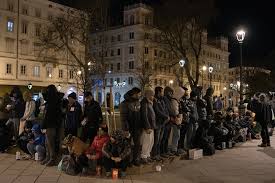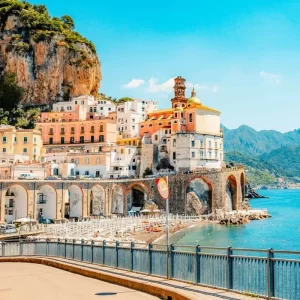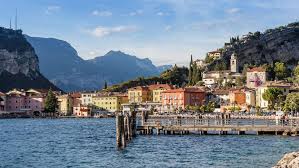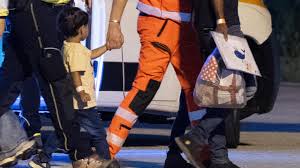Northeastern Italy – number of ‘invisible’ migrants up in Trieste

Rome: The Italian Consortium of Solidarity (ICS) illustrated on World Refugee Day, June 20, the figures and problems concerning the situation of migrants in the northeastern Italian city of Trieste.
The number of migrants reaching the city of Trieste, in the northeastern Friuli Venezia Giulia region, has slightly decreased between 2024 and 2025, according to official figures, although those who have become ‘invisible’ to authorities have increased, the NGO Italian Consortium of Solidarity (ICS) said on World Refugee Day, June 20.
The organization denounced that institutions are disorganized in handling migrant flows and that no renovation work has been carried out on a hostel meant to host foreigners.
The head of ICS, Gianfranco Schiavone, denied that migrant arrivals have actually decreased. “What is often said is untrue, or that we are dealing with a strong decrease in arrivals,” he noted.
“There has been a reduction by around 15-16 percent, but it is difficult to understand whether it is a decrease or whether the phenomenon has simply become more invisible, and if we compare our data to Slovenia’s, this thesis appears to prevail. There aren’t fewer people along the Balkan route, but criminal groups are much more organized and trafficking has become faster and more invisible,” he added.
According to the figures released on June 20, 16,052 migrants were intercepted in Trieste in 2023, while those apprehended in 2024 were 13,419.
Those intercepted last year included 8,355 men travelling alone, 2,218 unaccompanied foreign minors, 422 families, and 539 adult women who were on their own.
Between January and May 2025, 2,971 migrants were apprehended by authorities.
Schiavone denounced a “dramatic institutional disorganization” that is responsible for the fact that people need to wait some 15 days “to access the usual procedures during which they are completely abandoned to themselves. So they are in the city but they are less visible” with “many living in abandoned areas” including the former Old Port of Trieste, he noted.
Another relevant problem, according to Schiavone, is “the management of the hostel, a facility that should have hosted them but continues to be temporary. The necessary renovation work has never been carried out.”





